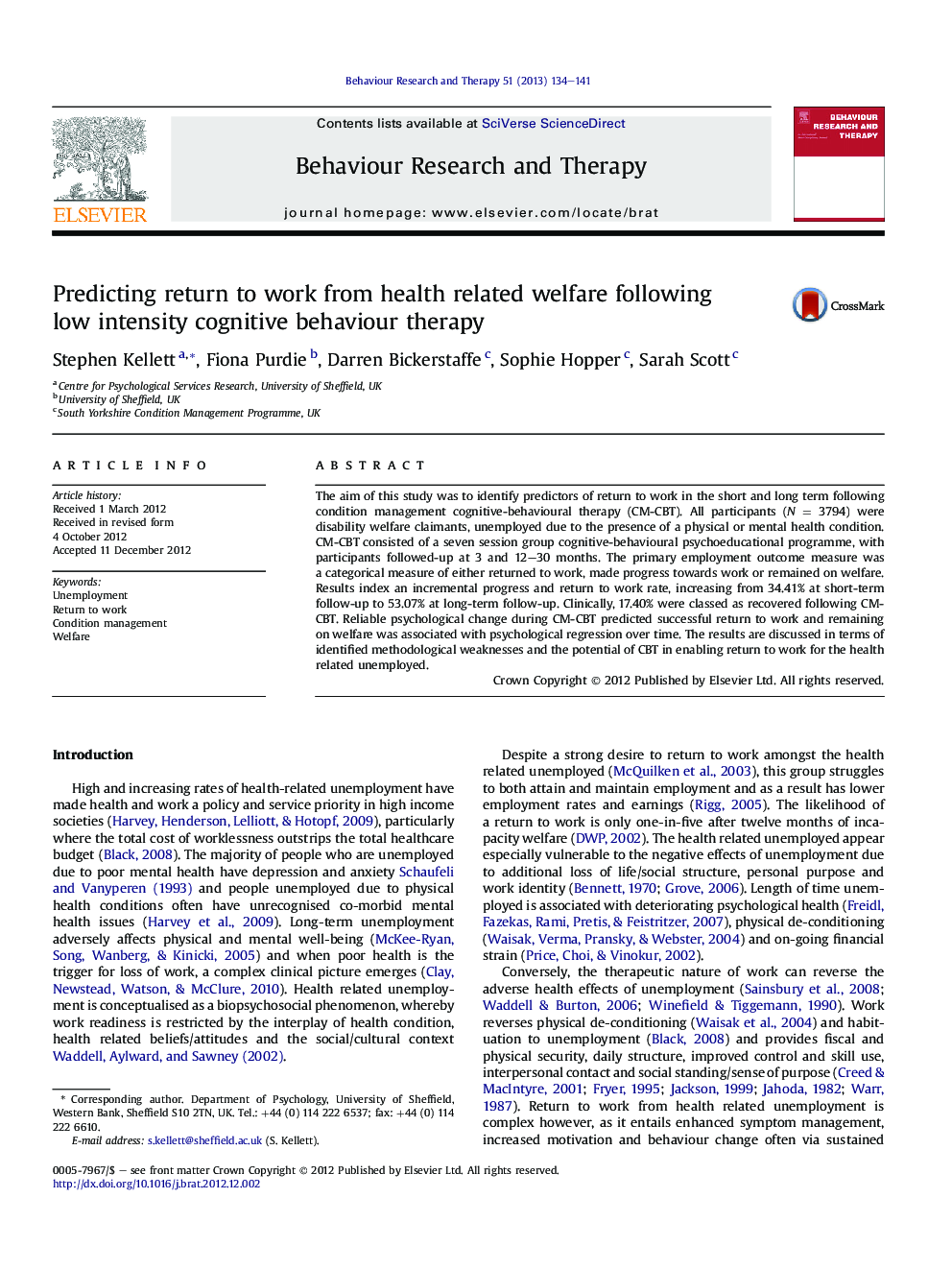| Article ID | Journal | Published Year | Pages | File Type |
|---|---|---|---|---|
| 901898 | Behaviour Research and Therapy | 2013 | 8 Pages |
The aim of this study was to identify predictors of return to work in the short and long term following condition management cognitive-behavioural therapy (CM-CBT). All participants (N = 3794) were disability welfare claimants, unemployed due to the presence of a physical or mental health condition. CM-CBT consisted of a seven session group cognitive-behavioural psychoeducational programme, with participants followed-up at 3 and 12–30 months. The primary employment outcome measure was a categorical measure of either returned to work, made progress towards work or remained on welfare. Results index an incremental progress and return to work rate, increasing from 34.41% at short-term follow-up to 53.07% at long-term follow-up. Clinically, 17.40% were classed as recovered following CM-CBT. Reliable psychological change during CM-CBT predicted successful return to work and remaining on welfare was associated with psychological regression over time. The results are discussed in terms of identified methodological weaknesses and the potential of CBT in enabling return to work for the health related unemployed.
► Progress/return to work; 34.41% at short-term and 53.07% at long-term follow-up. ► Clinically, 17.40% were classed as recovered following CM-CBT. ► Reliable psychological change during CM-CBT predicted successful return to work. ► Remaining on welfare was associated with psychological regression over time.
